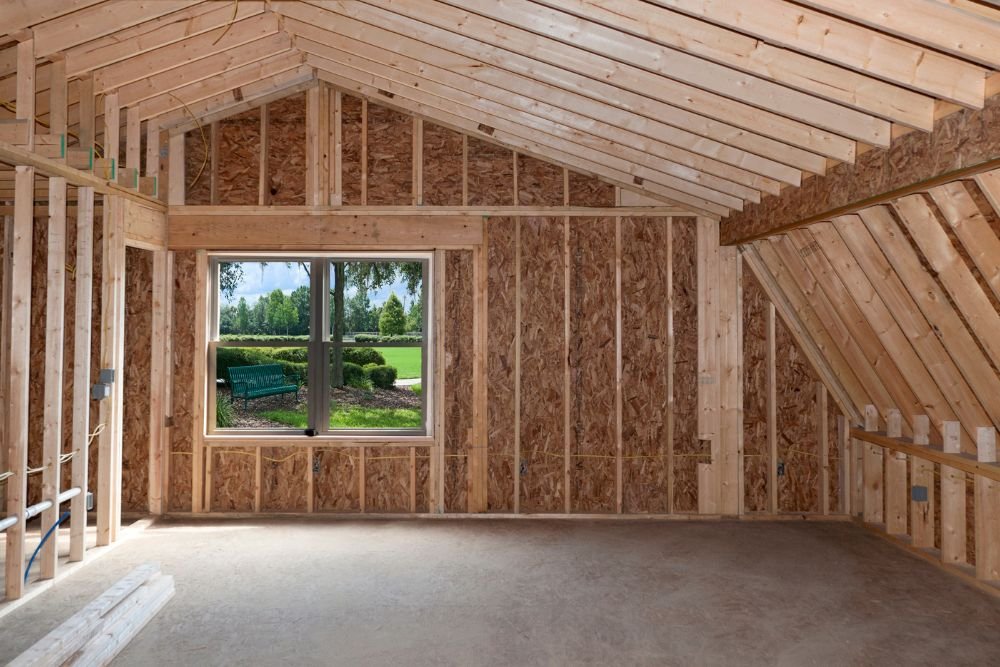
Planning a home expansion can be an exciting endeavor, but with so many different possibilities available, it's easy to feel overwhelmed. One of the first steps in the process is deciding on the type of addition that best suits your needs and preferences. Whether you need more space, desire a dedicated home office, or simply want to upgrade your existing layout, there's an suitable addition type for you.
Let's explore some popular types of home additions:
- Bump-outs: These are relatively small and affordable expansions that add square footage to an existing wall or structure.
- Structures: A new garage provides secure storage for your vehicle(s) and can also be transformed into a workshop, playroom, or even guest suite.
- Upper Levels: Adding a second story to your home offers a significant increase in living space, often completing the potential of your existing footprint.
Careful planning and consideration of these factors will help you choose the right addition type for your home and budget. Remember, a well-planned home expansion can significantly enhance your living experience and add equity to your property for years to come.
From Bump-Outs to Master Suites: Exploring Common Home Addition Styles
Thinking about expanding your living space? Home additions can dramatically transform your home, boosting its functionality and value. From cozy bump-outs to lavish master suites, the possibilities are truly endless. Let's delve into some popular home addition styles that homeowners often consider. Adding a sunroom can flood your home with natural light and create a peaceful retreat, perfect for relaxing or enjoying morning coffee. Enhancing a kitchen expansion allows you to cook up culinary delights in style, while a finished basement unlocks valuable living space, ideal for creating a home theater or guest suite. Transforming your bathroom with a new master suite can be a luxurious addition, featuring spa-like amenities and a tranquil oasis within your own home. No matter your vision, there's a perfect home addition style to accommodate your needs and elevate your living experience.
Extending Square Footage: Choosing the Right Addition for Your Needs and Budget
Before you embark on a home renovation project to boost your living space, it's crucial to carefully consider their needs and economic constraints. A well-planned addition can enhance your home, incorporating valuable functionality. However, an ill-conceived project can burden their finances and lead to frustration.
- , To begin with, Carefully assess your current living conditions. What spaces are {lacking|inefficient?
- , Subsequently, establish a clear objective for the addition. What purpose will it serve? Will it be a {dedicated home office, a spacious family room, or perhaps an extra bedroom to accommodate a growinghousehold?
- , Lastly, formulate a realistic budget that accounts for all financial considerations, including design fees, construction materials, and permits.
Kitchen Remodels vs. Additions: Deciding What's Best for You
Dreaming of a updated kitchen? A thoughtful remodel can completely change your existing space, but sometimes you need more than just cosmetic updates. A kitchen addition offers a whole new dimension, perfect for hosting large gatherings. Choosing between these two options depends on your aspirations and budget.
Here are some key points to ponder when making this big call:
* **Space Requirements:** How much additional space do you truly need? A remodel might be enough if your current How to buy a home in Fort Lauderdale kitchen is functional but lacks certain features. An addition, on the other hand, is necessary if you require a much bigger kitchen.
* **Budget:** Remodels tend to be less expensive than additions. However, both options can quickly get out of hand depending on the level of your project and material choices.
* **Lifestyle Needs:** Consider how you spend time in your kitchen. Do you often host large parties? Or is it primarily used for everyday meals? Your lifestyle influences the best option.
* **Home Value:** While both remodels and additions can boost your home's value, additions generally provide a higher return on investment.
Boosting Your Living Space: Design Considerations and Permits
Adding a room to your home can be a exciting way to expand your living area and improve its value. Nevertheless, careful planning is essential to guarantee a smooth implementation.
First, you'll need to thoroughly evaluate your needs. Why will you be using the addition? Do you want more living area?
Once you have a clear knowledge of your goals, you can commence to sketch the addition. Remember to incorporate existing architectural elements and make certain the extension complements with the overall aesthetic of your home.
After your design is finished, you'll require to acquire the essential licenses from your local government. This process can occasionally be time-consuming, so it's best to commence early.
Stay patient and work closely with your contractor throughout the entire implementation. With thorough consideration, you can triumphantly accomplish the art of home additions and build a beautiful and practical new space that enhances your living experience.
Maximizing Space and Value: Understanding the ROI of Different Additions
Investing in home additions can enhance your living space and property value. However, not all additions offer the same return on investment (ROI). Carefully analyze your needs, budget, and local market trends to make a choice that improves both your enjoyment and financialoutlook. A well-planned addition can be a valuable asset, increasing functionality, curb appeal, and overall comfort.
- Some additions, like kitchen renovations or master suite expansions, often offer strong ROI due to their impact on daily living and perceived value by potential buyers.
- Other additions, such as home theaters or swimming pools, may provide less quantifiable benefits but can significantly elevate your lifestyle.
- It's essential to research local market data to understand which additions are most popular in your area.
By weighing the potential benefits and costs, you can determine the best addition for your home and achieve a positive ROI.